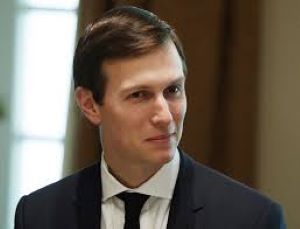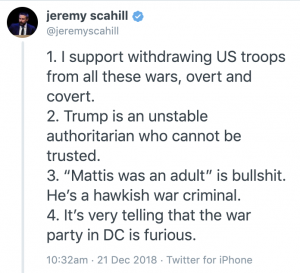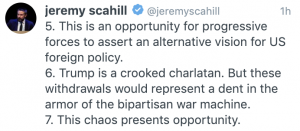The Saudi Payments to Trump Are More Important than the Suspected Egyptian One
As you know, I was calling on the press to focus on the suspected $10 million payment Egypt made to Trump before it was cool — since even before the WaPo significantly advanced the story over a month later.
In the aftermath of Trump’s shitshow presser last week, a slew of people have started calling on the hand–picked set of journalists who’ll attend today’s presser to focus on the Egyptian payment.
It is important that Trump face questions about it.
But, in my opinion, that’s not the most important financial windfall to question. The ongoing Saudi funding of Trump is.
There are four payments of interest:
- The $2 billion investment in Jared Kushner’s investment fund after Mohammed bin Salman overrode the recommendations of advisors who pointed out he’s unqualified and was charging too much.
- The LIV golf tournaments hosted at Trump properties; while Forbes has estimated the tournaments were a minimal part of Trump Organization revenue, they put Trump at the center of a Saudi influence-peddling racket that was too toxic for even Vivek Ramaswamy.
- The freebie branding deal for a development in Oman, for which Trump has already pocketed $5 million.
- The more recent deal — with the same government-connected construction firm as the Oman deal — for a Trump Tower in Jeddah.
There are a bunch of reasons why the Saudi payments are more important.
First, while the Egyptian payment does seem to have coincided with increased coziness on Trump’s part for Abdel Fattah El-Sisi, the Saudi/Gulf influence-peddling was orchestrated even earlier by Tom Barrack (and assisted by Paul Manafort). There’s good reason to suspect the autocrats of the world are at least chatting openly about efforts to reinstall Trump, because he will undermine democracy and human rights.
The Jared investment, especially, looks like a quid pro quo for America’s help downplaying the Jamal Khashoggi assassination. That is, that payment, at least, looks like a specific payoff, a payoff for letting Mohammed bin Salman chop up a US resident journalist with a bone saw.
As noted, Trump’s involvement in LIV really legitimized a clear Saudi influence-peddling racket.
The branding deals in Oman and Jeddah parallel the free money Moscow Trump Tower deal that was fairly clearly an attempt to purchase Trump (and put Trump back in the business of selling money laundering vehicles to corrupt people again).
The branding deals are especially troubling given the closer involvement of Eric and Don Jr in Trump’s campaign this time. Will Trump do what he did the last time, and install his children in the White House and give them access to classified records they would otherwise never be cleared to access?
And finally, there are the missing stolen documents. According to the indictment, Trump took boxes of documents with him to Bedminster after he hid them from Evan Corcoran (and he had the classified Iran document with him the previous summer in Bedminster). As ABC reported last month, Trump snuck back to Mar-a-Lago, a trip witnesses described was an effort to check on his stolen documents. Then, weeks later, the Saudis arrived for their golf tournament. By all accounts, there must be documents outstanding, and one possible explanation for their disappearance is they left the country.
Finally, and most simply, Trump has not (as far as I’ve seen) even remotely addressed what he will do with his existing Saudi deals if he is elected in November. Even if he agreed to shelter himself from the business (assuming, of course, that he doesn’t give either Don Jr or Eric a job in the White House), we would have to assume he was lying, just like he lied the last time.
We literally do not know whether Trump would enter the White House as a business partner, an employee, or an unregistered foreign agent of the Saudis.
The Saudi financial tie is ongoing and prospective. That makes it a far more urgent issue than a payment that may have been made over seven years ago.
Update: Amicus12 adds another reason to worry about the Saudi deals: Trump’s past efforts to strike a nuclear deal with the Saudis, which could be used to get nukes.







